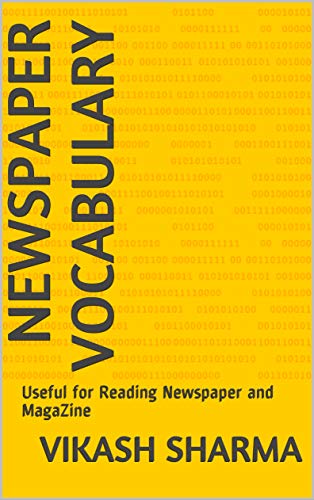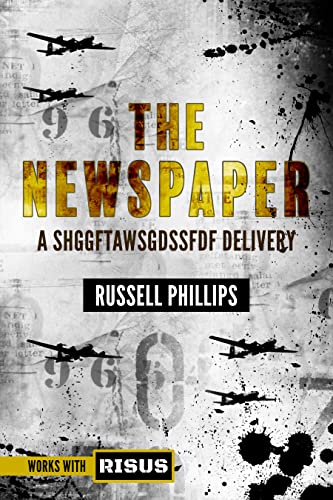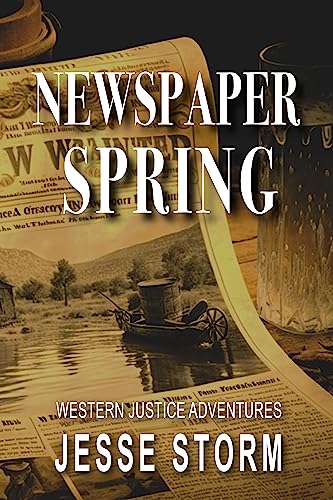America’s Most Influential Editors: The History of the Newspaper Publishers Who Changed American Journalism and Politics
$10.99
Price: $10.99
(as of Jun 10, 2024 22:25:16 UTC – Details)
*Includes pictures
*Includes accounts
*Includes online resources and a bibliography for further reading
*Includes a table of contents
Well before Lincoln and the “Black Republicans” were cited by secessionist firebrands looking to justify their stances, one of the men they most bitterly opposed was abolitionist editor William Lloyd Garrison. While many begin their adult lives with very strident views and then mellow over time, he did just the opposite. Raised by a pious single mother, he embraced the general teachings of the Christian faith as a young man, and in his 20s, he became convicted that slavery was the greatest moral evil in the nation. Thereafter, he devoted most of his life to seeing it ended, and he refused to give an inch in the name of compromise on the things he felt strongly about. As he famously put it, “With reasonable men, I will reason; with humane men I will plead; but to tyrants I will give no quarter, nor waste arguments where they will certainly be lost.” At the end of his life, Garrison could look back on the fact that he had played a major role in ending America’s original sin, and its most evil institution. At the same time, he had also to be aware that many of the wrongs he opposed, such as the death penalty and war, remained in place, while the rights he championed, for men and women of all races, remained to be realized.
While Garrison had a profound influence on the abolition movement, few of his contemporaries were as influential as Horace Greeley. There is little one can say about Greeley that has not already been said, much of it during his lifetime, for unlike many others, fame came to him early, and by the end of his life he was already one of the most famous men in the United States. Of course, no one who knew him as a young man would ever have thought that this would be the case, for he was born into less than ideal circumstances, and he went out to work early as a print setter. He experienced several business failures before finding success with the New York Tribune. On the other hand, he enjoyed quick but brief political successes, followed by frequent but unsuccessful runs for public office.
Say the name Pulitzer and the minds of many across the world quickly turn to the famous prizes given for excellence in journalism, literature, and music, but these prizes were named after a man believed to have been tormented by some of the choices he had made during his life. Coming to America as a nearly penniless immigrant, he demonstrated that the young nation could be a land of opportunity, and he earned money and fame largely through hard work. Later, as the owner of one of the most powerful papers in the country, he seemed to develop an almost frenzied need to stay on top, no matter the cost. Writing for the Post-Dispatch in 1997, Harry Levins observed that Pulitzer considered journalism “a serious instrument of civilization, yet in some periods filled his front pages with froth and sensationalism. Sided with the common man, yet lived like the Gilded Age millionaire he was. Waxed indignant at big business and its profit-seeking machinations, yet insisted that his own big business turn a tidy profit.
When William Randolph Hearst was in his late 50s and at the height of his power, journalist Robert Duffuss observed, “His career is unique in American history, or, for that matter, all history. Compared with him the Bennetts and even the Pulitzers are small…his acquaintances…credit him with personal charm, but do not deny his ruthlessness in business operations. Shopkeepers and his nearest rivals are simply not in his class. Here is success on a dizzying and truly American scale. Here is journalism as large as the Rocky Mountains or the Painted Desert.” However, despite his massive success, and perhaps in large measure because of it, many of Heart’s contemporaries depicted him in negative ways.
ASIN : B07MXPLKVL
Publisher : Charles River Editors (January 17, 2019)
Publication date : January 17, 2019
Language : English
File size : 24961 KB
Text-to-Speech : Enabled
Screen Reader : Supported
Enhanced typesetting : Enabled
X-Ray : Not Enabled
Word Wise : Enabled
Sticky notes : On Kindle Scribe
Print length : 193 pages
Page numbers source ISBN : 1791715273
User Reviews
Be the first to review “America’s Most Influential Editors: The History of the Newspaper Publishers Who Changed American Journalism and Politics”

$10.99







There are no reviews yet.